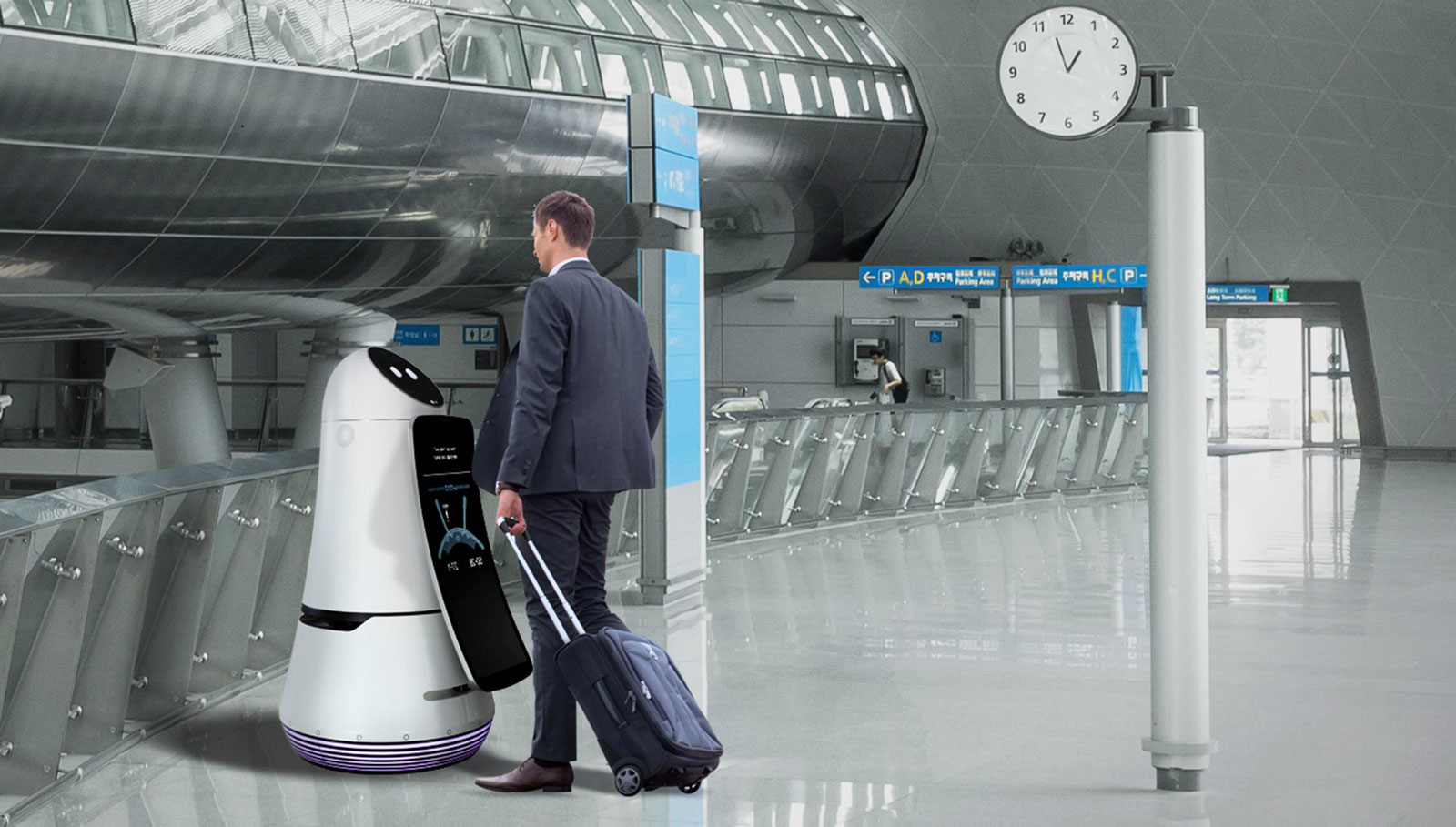Robots will start wandering at the largest airport of South Korea starting from this summer assisting tourists discover their boarding gates. They will also keep airport’s floors tidy as the nation start organizing for its first game of Winter Olympics. Commencing this month, a self-driving robot, Troika, developed by LG Electronics, will wander at the Incheon International Airport, telling tourists how much time it will take to escort them to their flights and get to boarding gates. A huge cleaning robot will assist cleaning workers wash the broad areas of floors in the airport west of Seoul.
Being about the size of a youngster, Troika is integrated with a rectangular screen on its front that appears like a huge smartphone display and can display flight data, weather data, and an airport map. It’s partially curved head has a plane touchscreen face that shows smiling or blinking eyes, or data. The directing bot reacts to its name. To get flight information, tourists can put in their tickets into its scanner and Troika will then request if they wish to be guided to their gates, alerting lazybones to “Please stay near so I can spot you”.

Troika’s entry pleased the interest of most of them present in the airport. Children approached and heads swiveled with interest as the 4 foot 6 inch (140-centimenter) long robot with its black screens and white body wandered through the terminal.
Robotics is achieving a base in South Korea, where most of big ventures are mechanizing factory manufacturing lines. South Korean scientists, in international robot competitions, have won awards. In 2015, Team KAIST of South Korea beat Japan and the U.S. to win the DARPA Robotics Challenge with a robot that finished tasks without dropping balance. But South Korea has been sluggish to roll out interactive robots or human-like bots in public places such as stores or hotels, unlike its neighborhood Japan where humanoid Pepper of Softbank is no outsider.
Incheon International Airport Corp. thinks that it is the first to roll out such robots that are service-oriented in nature in a South Korean public place. Korea Airports Corp., another state-owned airport operator, which operates in South Korea and runs 15 international airports but not Incheon airport, has combined with local companies as well to roll out air-purifying bots to clean terminals and calculate air quality.